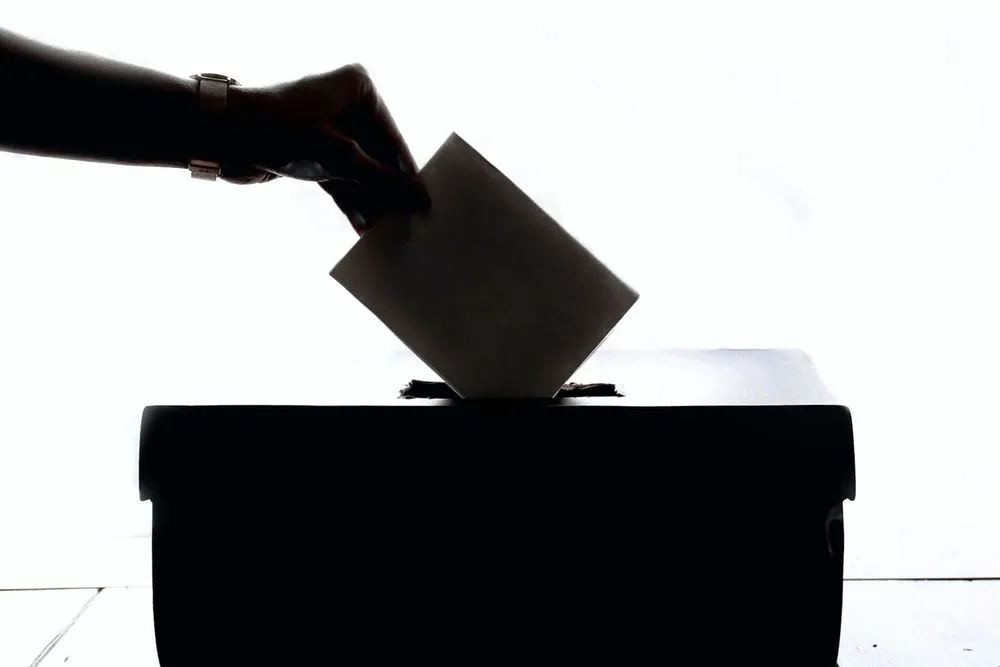Minor technical, cyber issues bubble up during Election Day, but no major incidents
Updated 3:50 pm EST.
Cyberthreats against the U.S. election have yet to materialize on Election Day, though some trouble spots have popped up around the country due to minor digital and technical issues.
“We continue to see no specific or credible threat to disrupt the election infrastructure or Election Day operations," a senior Cybersecurity and Infrastructure Security Agency (CISA) official told reporters during the organization’s second Election Day media briefing. "We've seen no activity that should cause anyone to question the security, integrity, or resilience of our election infrastructure.”
“We know in this environment, normal technical challenges can sometimes be misinterpreted to mean malicious activity,” the official added. “We have seen no indications to date that this is the case.”
Several Republican politicians and pundits have pounced on voting machine issues in Maricopa County, Arizona — which became ground zero for disinformation and conspiracy theories around the 2020 presidential election — to stoke fears of a sinister plot by local election officials. Those officials later posted a video to explain the malfunction and assure the public that a fix was underway.
#Cabassous (#FluBot) actors are heavily developing new overlay targets and also performing an environmental checks (av) before it executing the banker payload. Interesting new countries and developments coming from this private group in such a short period of time. pic.twitter.com/0pWXHaMa1j
— ThreatFabric (@ThreatFabric) April 26, 2021
The CISA official said the organization was aware of the problem with ballot scanners “and we've been in touch with officials at the state and county levels.”
CISA hasn’t seen any evidence that foreign adversaries are spreading misinformation to take advantage of anger about technical issues, which have also occurred in Mercer County, New Jersey, the official told reporters.
"Given what we know about these foreign actors, it would not be surprising if many of them were taking advantage of uncertainty or these very normal issues that go on in every single election and trying to amplify them as something nefarious,” the official said.
The official said the agency hasn’t been tracking a reported distributed denial of service (DDoS) attack on the Champaign County Clerk’s Office in Illinois.
"We will go back and look at Champaign and get in touch with them to see if there's any issues. … We have vendors sitting in the room with us, and they have not reported any issues at this time."
Meanwhile, U.S. Cyber Command and National Security Agency chief Gen. Paul Nakasone issued a statement saying his organizations “are committed to defending our electoral process from foreign threats.”
“We continue to refine what we learned from the 2018 and 2020 elections,” said Nakasone, who led Cyber Command and NSA through both of those previous cycles. “We generate insight to enable defense of the homeland, and ultimately impose costs by degrading and exposing foreign adversary capabilities and operations.”
“Americans can rest assured: thousands of your fellow citizens stand ready to defend your vote, every single day,” he added.
In a statement, a spokesperson for Cyber Command and NSA’s joint election security task force, known as the “Election Security Group,” said the organizations have “24/7 ops centers” where personnel from both can share information about digital threats.
As in previous elections, they also have “active chatrooms with our interagency partners and liaisons embedded in FBI, CISA and other operation centers,” the spokesperson said, adding "unclassified chatrooms with state and local entities" have also been established to share tips.
This article will be updated throughout Election Day.
Martin Matishak
is the senior cybersecurity reporter for The Record. Prior to joining Recorded Future News in 2021, he spent more than five years at Politico, where he covered digital and national security developments across Capitol Hill, the Pentagon and the U.S. intelligence community. He previously was a reporter at The Hill, National Journal Group and Inside Washington Publishers.



